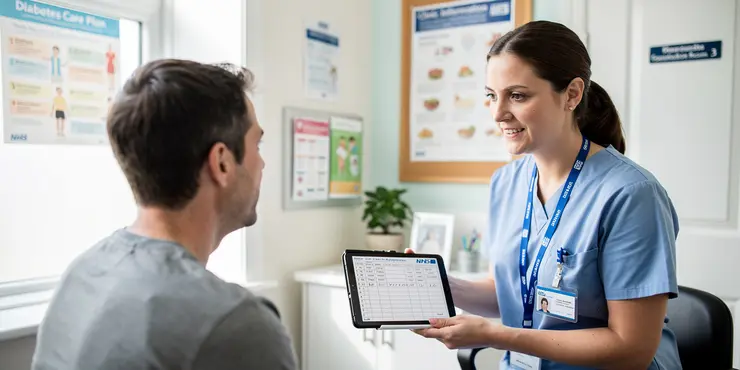
Find Help
More Items From Ergsy search
-
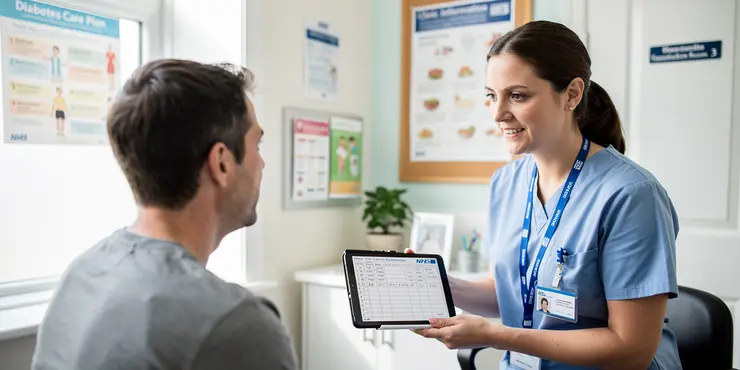
How is Type 2 Diabetes treated?
Relevance: 100%
-
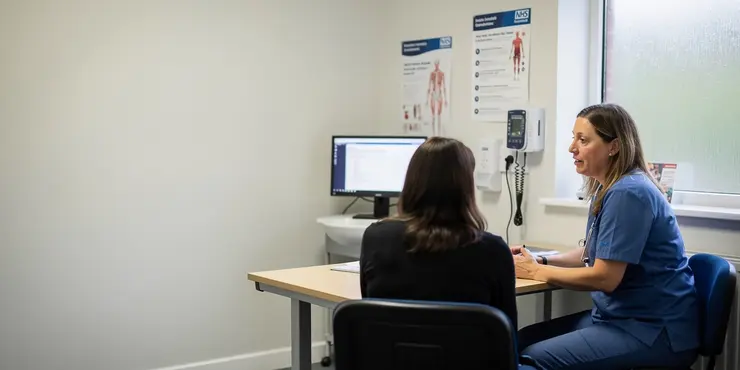
Is Teplizumab used to treat diabetes?
Relevance: 86%
-
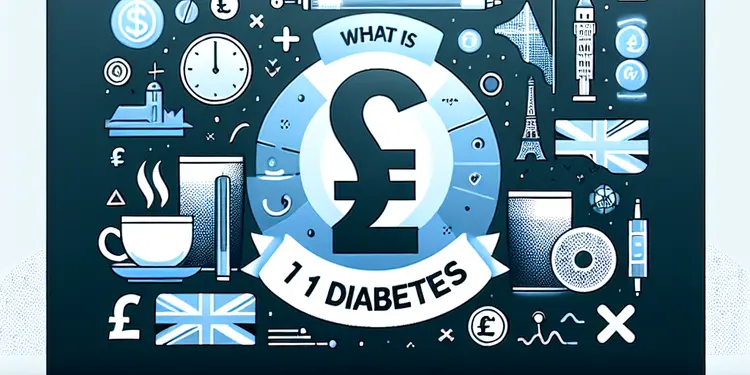
What is type 1 diabetes?
Relevance: 86%
-

Type 1 Diabetes supporting adults to manage Type 1 diabetes
Relevance: 85%
-
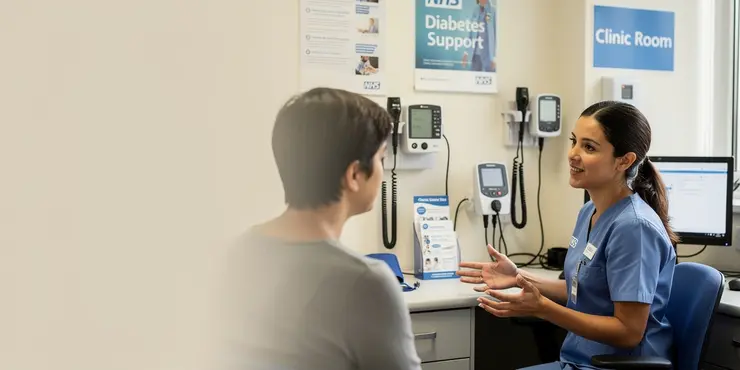
Is Type 2 Diabetes hereditary?
Relevance: 82%
-
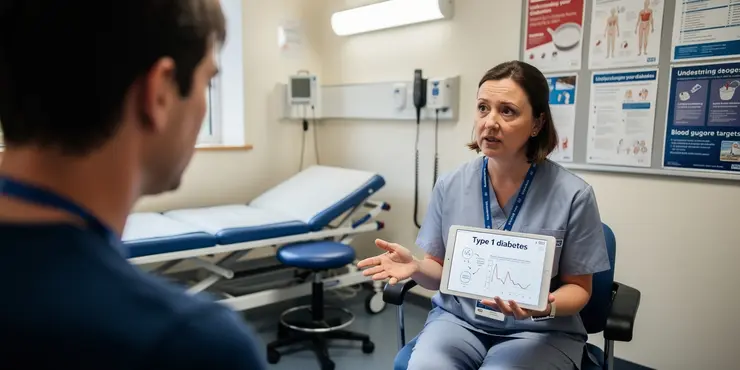
What is type 1 diabetes?
Relevance: 82%
-
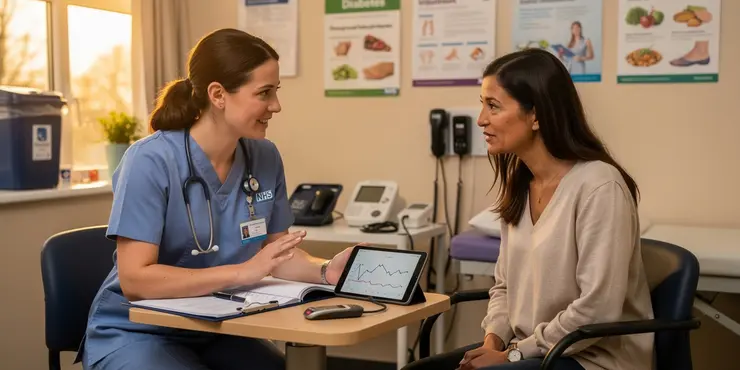
What Is Type 2 Diabetes? | 2 Minute Guide | Diabetes UK
Relevance: 81%
-
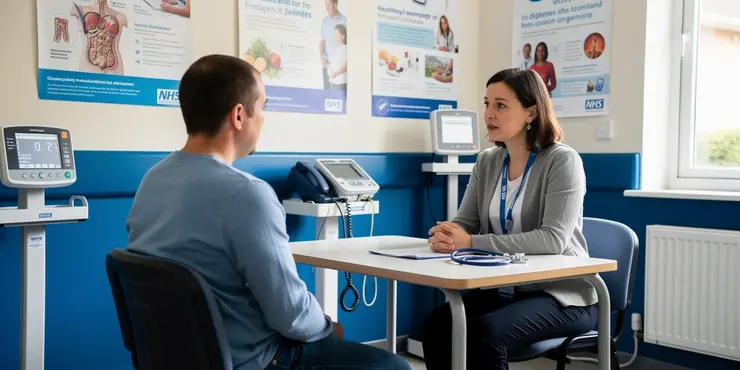
Is Ozempic suitable for type 1 diabetes?
Relevance: 80%
-

What is the difference between type 1 and type 2 diabetes?
Relevance: 79%
-

Is there a genetic predisposition to type 1 diabetes?
Relevance: 78%
-

What causes Type 2 Diabetes?
Relevance: 77%
-

Can Mounjaro be used in type 1 diabetes?
Relevance: 77%
-
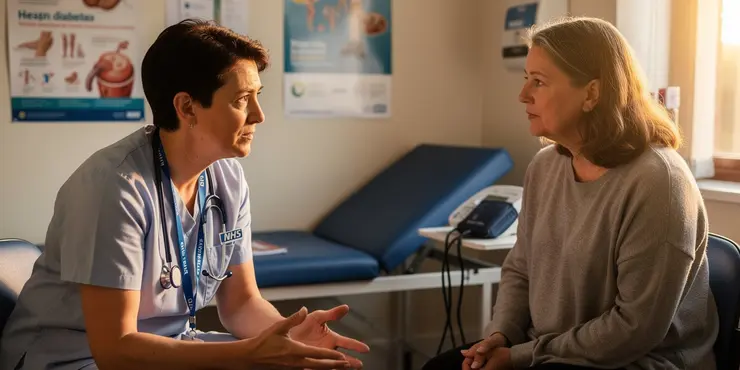
Can Type 2 Diabetes go away?
Relevance: 77%
-
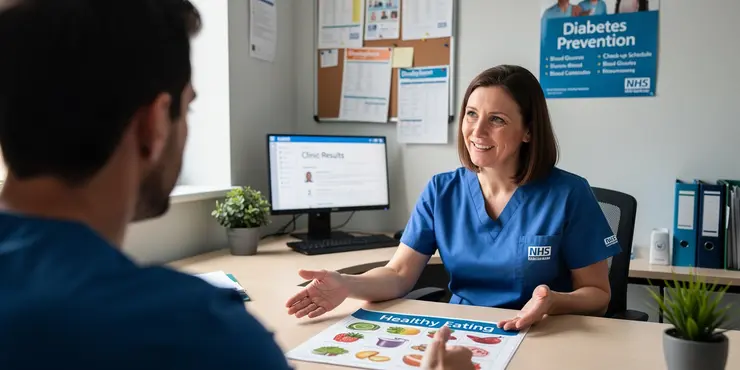
Can Type 2 Diabetes be prevented?
Relevance: 77%
-
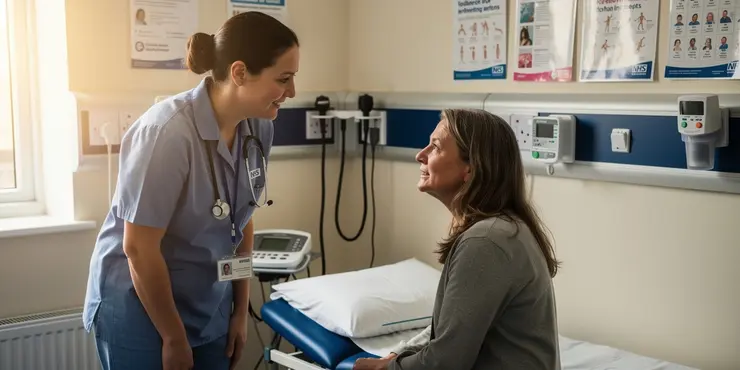
What are the symptoms of Type 2 Diabetes?
Relevance: 77%
-

How is Type 2 Diabetes diagnosed?
Relevance: 76%
-
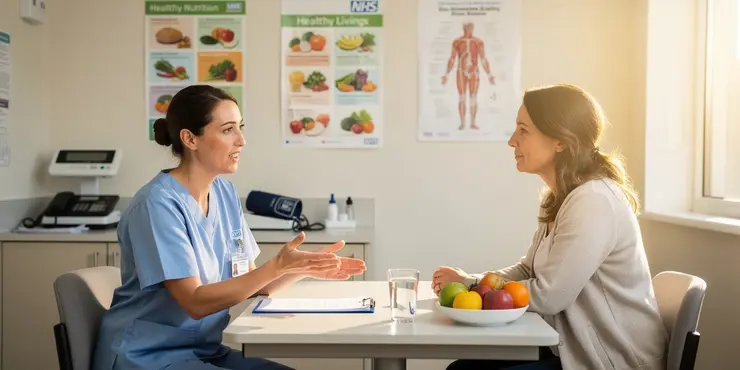
How to manage type 2 diabetes
Relevance: 76%
-

Is Wegovy used for type 2 diabetes management?
Relevance: 75%
-
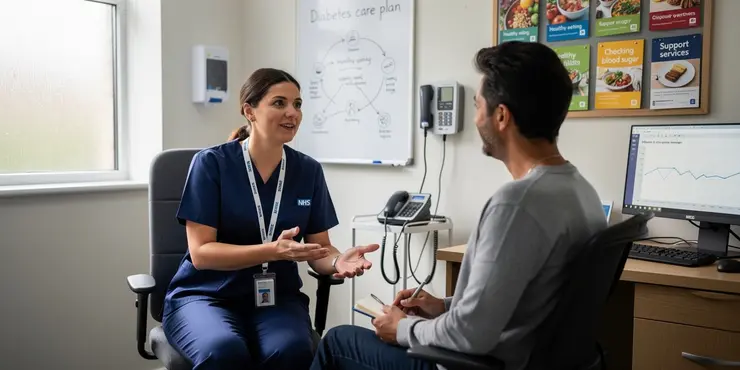
What complications are associated with Type 2 Diabetes?
Relevance: 75%
-
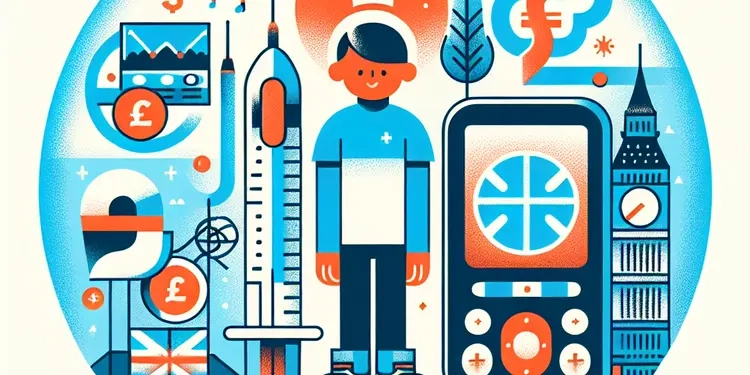
Should I screen my child for type 1 diabetes?
Relevance: 73%
-
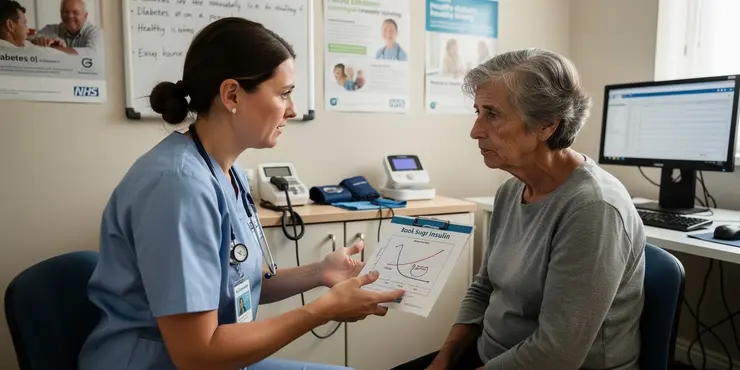
What is the role of insulin in Type 2 Diabetes?
Relevance: 73%
-
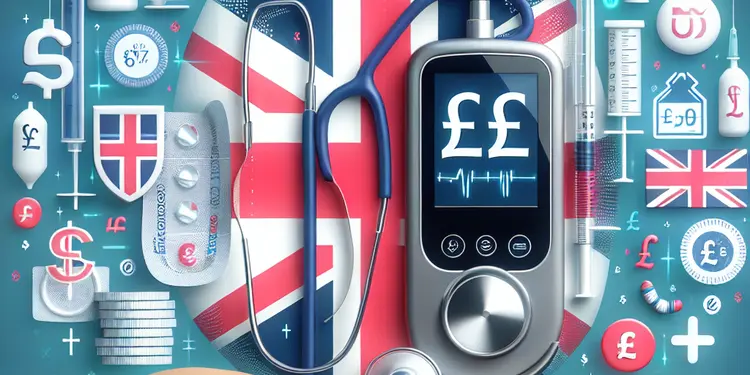
What are the limitations of type 1 diabetes screening?
Relevance: 73%
-
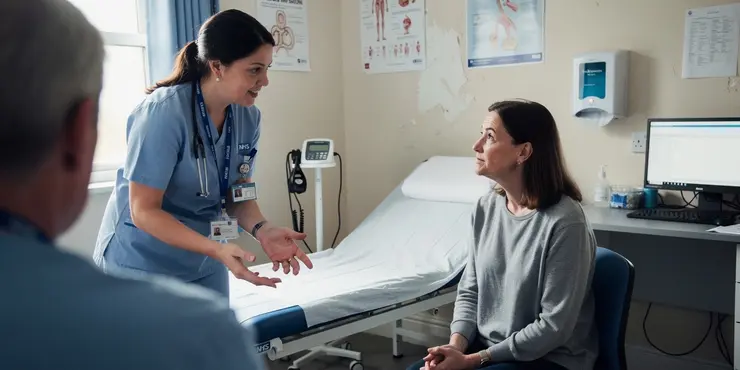
Can stress affect my Type 2 Diabetes?
Relevance: 72%
-
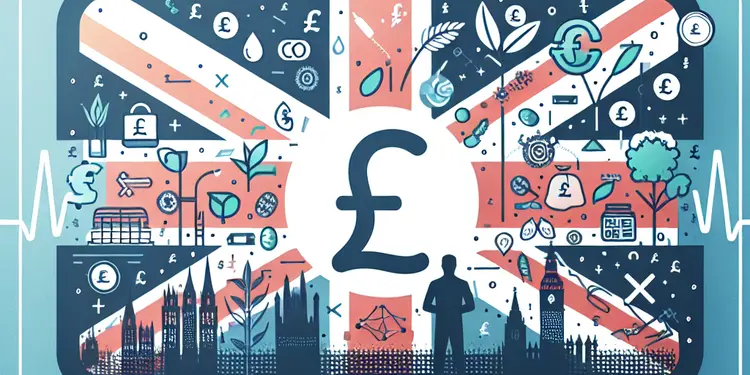
Can environmental factors contribute to type 1 diabetes?
Relevance: 70%
-
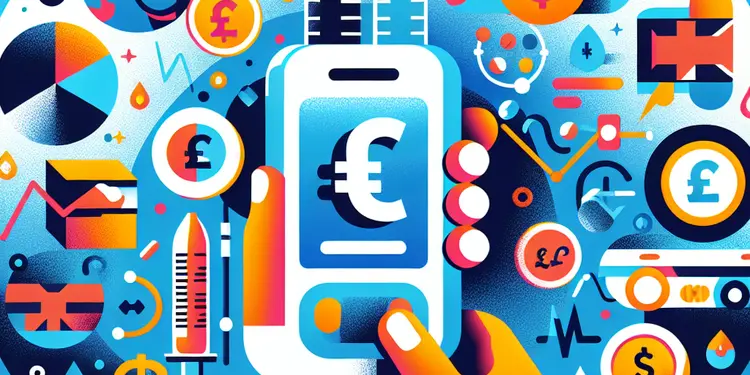
What does screening for type 1 diabetes involve?
Relevance: 70%
-
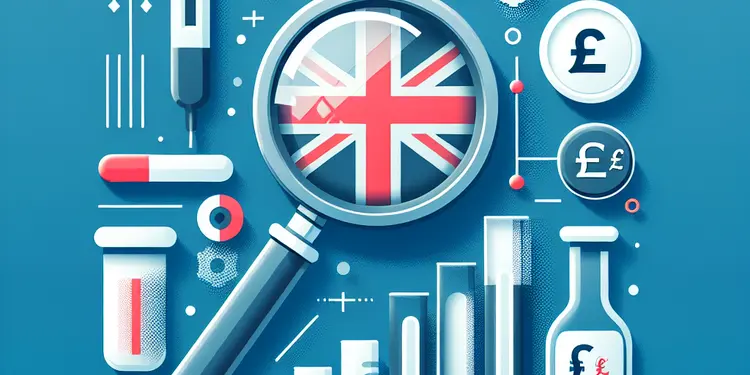
How accurate are the tests for predicting type 1 diabetes?
Relevance: 70%
-
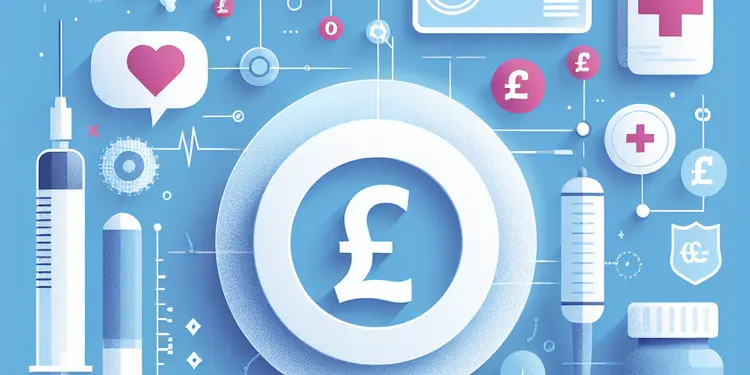
Are there any clinical trials for preventing type 1 diabetes?
Relevance: 70%
-

Does insurance cover type 1 diabetes screening?
Relevance: 70%
-
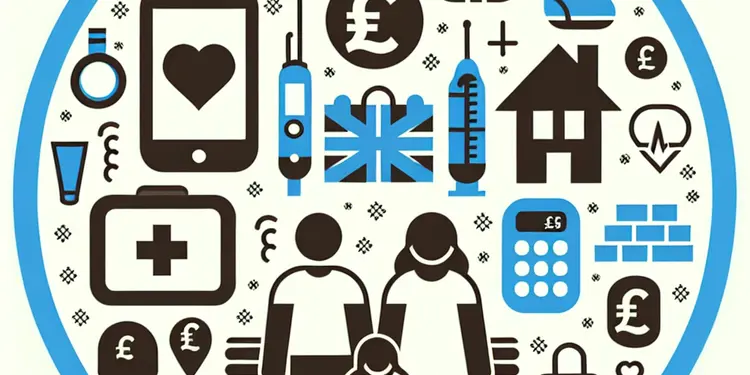
What support is available for families dealing with type 1 diabetes?
Relevance: 69%
-
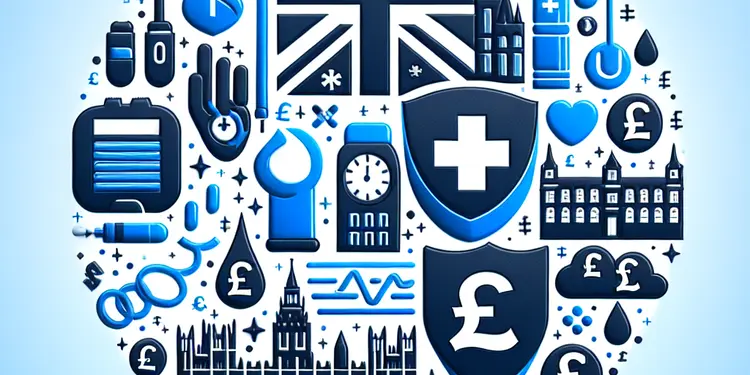
What are the benefits of early detection of type 1 diabetes?
Relevance: 68%
-
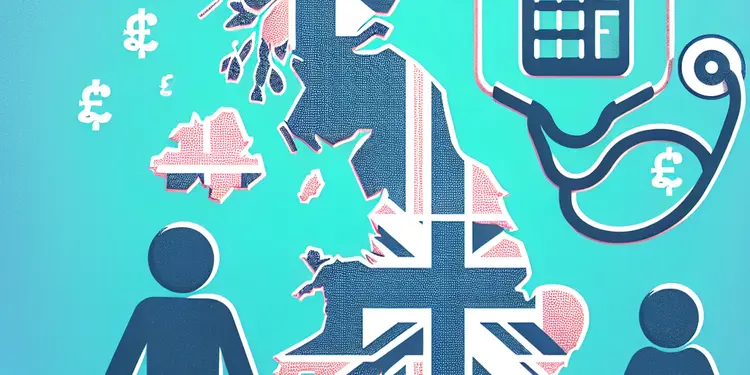
Where can I have my child screened for type 1 diabetes?
Relevance: 68%
-
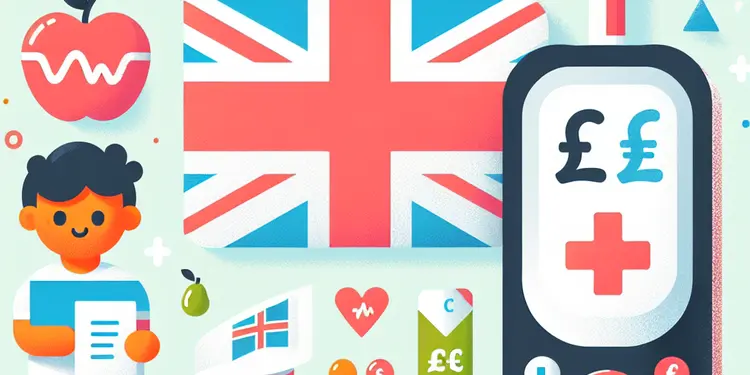
At what age should my child be screened for type 1 diabetes?
Relevance: 68%
-
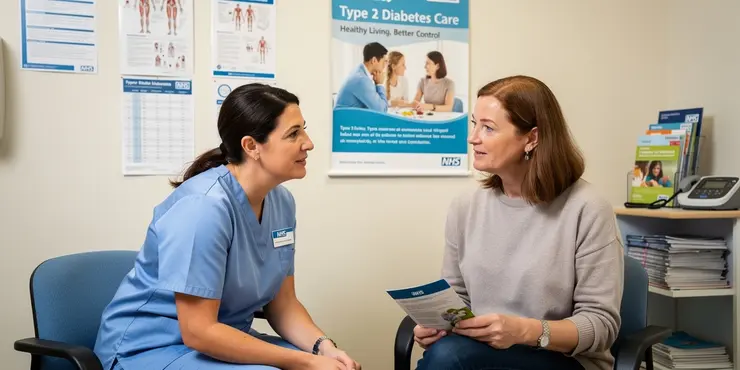
Where can I find support for managing Type 2 Diabetes in the UK?
Relevance: 68%
-
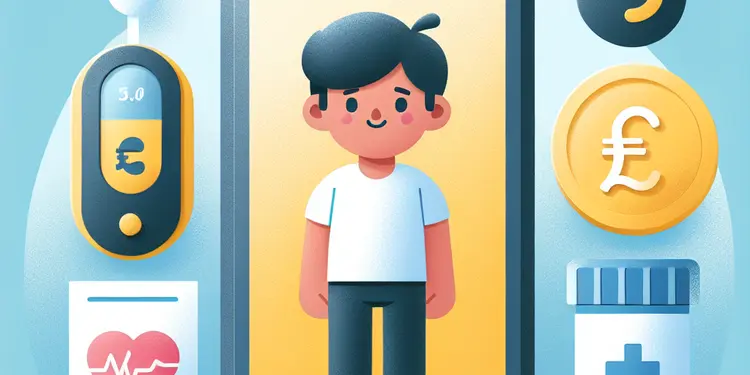
Why should I consider screening my child for type 1 diabetes?
Relevance: 68%
-

Are there any symptoms of type 1 diabetes I should watch for in my child?
Relevance: 67%
-
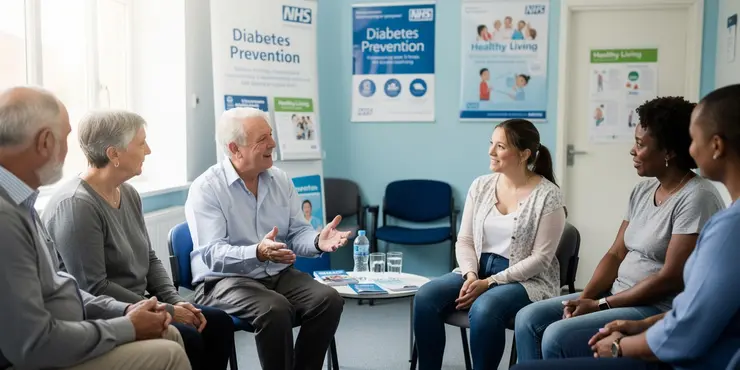
NHS Diabetes Prevention Programme; Preventing Type 2 and improving outcomes for people with diabetes
Relevance: 67%
-
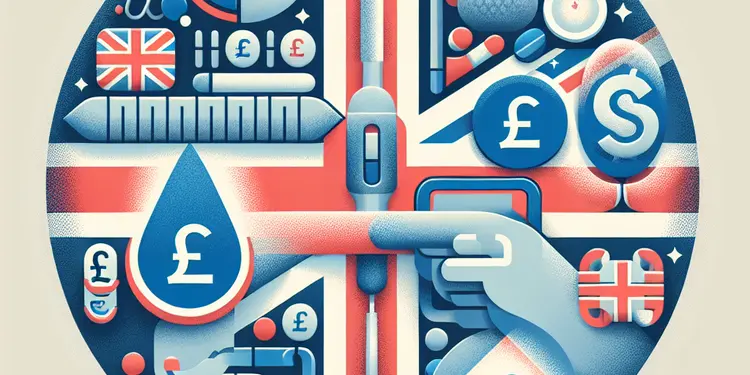
Should siblings of a child with type 1 diabetes also be screened?
Relevance: 67%
-
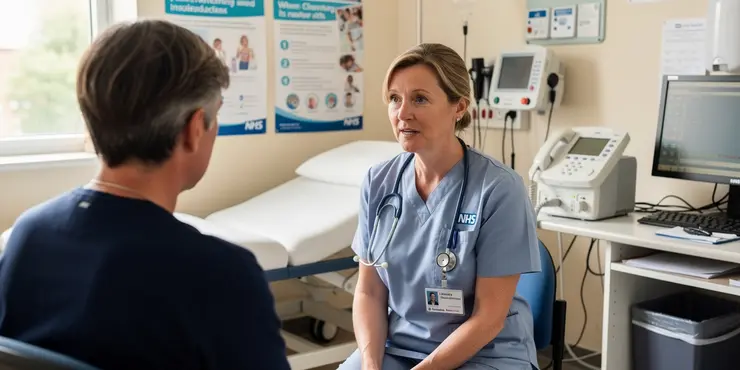
Type 2 diabetes - common signs and symptoms UHL NHS Trust
Relevance: 65%
-

What can I eat if I have Type 2 Diabetes?
Relevance: 63%
-

What lifestyle changes can lower my child's risk of type 1 diabetes?
Relevance: 63%
Treatment Overview for Type 2 Diabetes
Type 2 diabetes is a chronic condition that affects the way the body processes blood sugar (glucose). Managing this condition typically requires a combination of lifestyle changes, monitoring, and sometimes medication. The primary goals of treatment are to maintain normal blood glucose levels and prevent complications associated with the disease.
Lifestyle Modifications
One of the most crucial aspects of managing Type 2 diabetes is adopting a healthy lifestyle. This involves making changes to diet and physical activity levels. A diet rich in whole grains, fruits, vegetables, lean proteins, and low-fat dairy products is recommended. Reducing intake of saturated fats, sugars, and processed foods can significantly improve blood sugar levels. Additionally, regular physical activity can help improve insulin sensitivity. The NHS suggests at least 150 minutes of moderate-intensity exercise, such as brisk walking or cycling, each week.
Blood Glucose Monitoring
Regular monitoring of blood glucose levels is essential for people with Type 2 diabetes. Self-monitoring helps in understanding how different foods, activities, and medications affect blood sugar levels. It can guide necessary adjustments in treatment plans. The frequency and timing of monitoring can vary based on individual needs and recommendations by healthcare providers.
Medications
For many individuals with Type 2 diabetes, lifestyle changes may not be enough to manage blood glucose levels. Doctors may prescribe medications that help control blood sugar levels. Metformin is often the first medication prescribed and works by reducing glucose production in the liver. Other medications, such as sulfonylureas, thiazolidinediones, and DPP-4 inhibitors, may be used depending on individual needs and responses.
Insulin Therapy
While Type 2 diabetes is commonly associated with insulin resistance rather than insulin deficiency, some individuals may need insulin therapy. This could be due to the pancreas failing to produce enough insulin over time. Insulin can be administered via injections or an insulin pump and is tailored to each patient's needs. The use of insulin is more prevalent when other treatments do not adequately control blood sugar levels.
Regular Medical Check-Ups
Routine check-ups with healthcare professionals are vital in managing Type 2 diabetes. These appointments allow healthcare providers to monitor progress, adjust treatments as needed, and screen for complications. Common evaluations include checking blood pressure, cholesterol levels, kidney function, and eye health, as diabetes can impact various body systems.
Conclusion
Treating Type 2 diabetes effectively requires a comprehensive approach that combines diet, exercise, monitoring, medication, and regular healthcare consultations. By closely working with healthcare providers and adhering to prescribed treatment plans, individuals with Type 2 diabetes can lead healthy, active lives while minimizing the risks of complications.
Treatment Overview for Type 2 Diabetes
Type 2 diabetes is a condition where the body has trouble using sugar in the blood. To manage it, people need to make lifestyle changes, check their blood sugar, and sometimes take medicine. The main goals are to keep blood sugar levels normal and stop any problems from developing.
Lifestyle Changes
Making changes to how you live is very important for controlling Type 2 diabetes. This means eating and moving in healthy ways. It's good to eat whole grains, fruits, vegetables, lean meats, and low-fat dairy. Try to eat less bad fats, sugars, and fast foods. Moving your body regularly, like through walking or biking, helps too. Aim for at least 150 minutes of activity every week. This is what doctors recommend.
Checking Blood Sugar
People with Type 2 diabetes need to check their blood sugar often. This helps them see how food, exercise, and medicines affect their blood sugar. It can help make changes if needed. How often you check can depend on what your doctor says.
Medicines
Sometimes, changes in lifestyle might not be enough to manage blood sugar. Doctors might give medicine to help. Metformin is a common choice because it helps lower sugar made by the liver. There are other medicines too, like sulfonylureas and DPP-4 inhibitors, which might be used based on what each person needs.
Insulin Therapy
Even though Type 2 diabetes usually means the body resists insulin, sometimes people need insulin shots. This can happen if the body doesn’t make enough insulin. Insulin can be given with shots or a pump. It is used more if other treatments don't work well.
Regular Health Check-Ups
Seeing doctors regularly is important when you have Type 2 diabetes. Doctors check how you're doing, change treatments if needed, and look out for problems. They might check your blood pressure, cholesterol, kidneys, and eyes because diabetes can affect these parts of the body.
Conclusion
To manage Type 2 diabetes, you need to eat well, exercise, check your blood sugar, take medicine, and see your doctor often. Working with your doctor helps you stay healthy and keeps problems away.
Frequently Asked Questions
What are the main goals of Type 2 Diabetes treatment?
The main goals are to manage blood glucose levels, reduce risk of complications, and promote a healthy lifestyle.
What role does diet play in managing Type 2 Diabetes?
Diet plays a crucial role by helping control blood sugar levels and maintaining a healthy weight.
How can exercise help in the treatment of Type 2 Diabetes?
Regular exercise helps improve insulin sensitivity and control blood sugar levels.
What medications are commonly prescribed for Type 2 Diabetes?
Common medications include metformin, sulfonylureas, and insulin therapy.
Is insulin therapy necessary for all individuals with Type 2 Diabetes?
Not all individuals need insulin therapy; it depends on the severity of the condition and other factors.
Can weight loss impact Type 2 Diabetes management?
Yes, losing weight can significantly improve blood glucose levels and overall health.
How often should individuals with Type 2 Diabetes monitor their blood sugar?
The frequency depends on the treatment plan but often includes daily monitoring or as advised by a healthcare provider.
What are the benefits of a low-carbohydrate diet for Type 2 Diabetes?
A low-carbohydrate diet can help reduce blood sugar spikes and manage overall glucose levels.
Are there any surgical options for managing Type 2 Diabetes?
Bariatric surgery is an option for some individuals, especially those with obesity, and can improve insulin sensitivity.
Can stress management have an impact on Type 2 Diabetes?
Yes, managing stress can help in controlling blood sugar levels, as stress hormones can affect insulin function.
Is Type 2 Diabetes reversible?
While there's no cure, some individuals can achieve remission through lifestyle changes and weight loss.
What is the role of fiber in managing Type 2 Diabetes?
Fiber can help regulate blood sugar levels and improve digestive health.
How does alcohol consumption affect Type 2 Diabetes?
Alcohol can interfere with blood sugar levels and diabetes medications.
Can over-the-counter supplements help manage Type 2 Diabetes?
Some supplements may help, but it's important to consult with a healthcare provider before use.
How important is hydration in managing Type 2 Diabetes?
Proper hydration can assist in maintaining overall health and supporting kidney function.
What is the impact of smoking cessation on Type 2 Diabetes?
Quitting smoking can improve cardiovascular health and aid in diabetes management.
Is it necessary to see a dietitian for Type 2 Diabetes management?
While not necessary, consulting a dietitian can provide personalized dietary guidance.
What is the role of technology in managing Type 2 Diabetes?
Technology such as continuous glucose monitors and apps can help track blood sugar and manage diabetes.
How does sleep affect Type 2 Diabetes management?
Poor sleep can affect insulin sensitivity and blood sugar levels, so quality sleep is important.
What are the long-term treatment considerations for Type 2 Diabetes?
Long-term management includes regular monitoring, lifestyle adjustments, and ongoing medical care.
What are the main goals of Type 2 Diabetes treatment?
What are the main aims of treating Type 2 Diabetes?
When you have Type 2 Diabetes, it is important to:
- Keep your blood sugar levels normal. This helps you feel good and stay healthy.
- Make sure your blood pressure and cholesterol are normal too. This helps your heart stay strong.
- Eat healthy food and move your body regularly. This keeps your body in good shape.
- Take your medicine if the doctor gives you any. It will help you manage your diabetes better.
Helpful tools:
- A simple blood sugar checker can help you see how your sugar levels are doing.
- A chart to write down your blood sugar levels and what you eat can be useful.
The main goals are to keep blood sugar levels healthy, prevent problems, and support a healthy way of living.
How does food help with Type 2 Diabetes?
We need to eat the right food to help with Type 2 Diabetes. Eating healthy food can make us feel better and help manage this condition. Here are some easy tips:
- Eat lots of fruits and vegetables. These are good for us.
- Choose whole grains like brown rice or whole wheat bread.
- Drink water instead of sugary drinks.
These tips can help us stay healthy. If you need help, you can talk to a doctor or a person who knows a lot about healthy eating. They can give you more advice.
What you eat is very important. It helps keep your blood sugar low and helps you stay at a good weight.
How can exercise help people with Type 2 Diabetes?
Exercise is good for your body and can help people with Type 2 Diabetes feel better.
Here’s how exercise can help:
- It helps your body use sugar in a better way.
- It makes your heart and muscles strong.
- It can help you feel happier.
Try to move your body, like walking or playing, every day. Ask someone like a doctor for help or if you have questions. Tools like videos or apps on a tablet can remind you to exercise.
Moving your body with regular exercise can help your body use insulin better and keep your blood sugar levels steady.
What medicines do people often take for Type 2 Diabetes?
Doctors often give people medicine to help with diabetes. These medicines can be:
- Metformin: It helps to control sugar in the blood.
- Sulfonylureas: These help the body make more insulin.
- Insulin therapy: Insulin is a hormone that helps control blood sugar.
If you find reading hard, you can:
- Use a digital reader to read it out loud.
- Ask someone to explain it to you.
- Look at pictures or videos about these medicines to understand better.
Do all people with Type 2 Diabetes need insulin?
Not everyone with Type 2 Diabetes needs insulin.
Some people can manage their diabetes with medicine, exercise, and healthy food.
It is important to talk to a doctor about what is best for you.
Using tools like picture charts or videos can help you learn more.
Not everyone needs insulin medicine. It depends on how serious their health problem is and other things about their health.
Can losing weight help with Type 2 Diabetes?
Yes, losing weight can help people with Type 2 Diabetes.
When you lose weight, your body can use insulin better.
This can make your blood sugar levels better.
Here are some tips to help lose weight:
- Eat healthy foods like fruits and vegetables.
- Try to move more. Walking is good.
- Ask a doctor or nurse for advice.
These things can help manage Type 2 Diabetes.
Yes, losing weight can help make blood sugar better and improve health.
How often should people with Type 2 Diabetes check their blood sugar?
People with Type 2 Diabetes need to check their blood sugar to stay healthy.
Here is a simple guide to help:
- Check your blood sugar once or twice a day.
- Your doctor will tell you what is best for you.
- Write down your blood sugar numbers in a notebook.
- A blood sugar monitor can help you check your levels at home.
You can use pictures or color codes to help understand your blood sugar numbers.
How often you check depends on your treatment plan. Usually, this means checking every day. Ask your doctor for advice.
How can a low-carbohydrate diet help people with Type 2 Diabetes?
A low-carbohydrate diet means eating fewer sugars and starches. This can help people with Type 2 Diabetes. Here’s how:
- Blood Sugar Control: Eating less sugar helps keep blood sugar levels steady.
- Weight Loss: A low-carb diet can help you lose weight, which can improve your health.
- Lower Need for Medicines: Some people might need less medicine when they eat this way.
You can ask a family member or a doctor for help with your diet. Using pictures or apps that track meals can also be helpful.
A low-carb diet means eating less sugar and starchy foods. This can help keep your blood sugar steady and lower.
Can surgery help with Type 2 Diabetes?
Yes, doctors can sometimes do surgery to help people with Type 2 Diabetes. This might help them control their blood sugar better.
If you want to know more, talk to your doctor. They can explain what surgery might help you and answer any questions.
Using pictures, videos, and simple charts can also help you understand more about this topic.
Sometimes, people who are very overweight can get a special type of surgery. This is called bariatric surgery. It can help them be healthier and make their bodies use insulin better.
Can handling stress help with Type 2 Diabetes?
Yes, if you feel less stressed, it can help keep your blood sugar steady. Stress can change how insulin works in your body.
Can you make Type 2 Diabetes go away?
Type 2 Diabetes is when your body has trouble using sugar for energy.
Some people can make it better with healthy habits:
- Eating healthy foods
- Doing exercise
- Losing weight if you need to
- Taking medicine from the doctor
Use these to help understand:
- Ask someone to read with you
- Use pictures to help
- Take notes or draw what you learn
There isn't a cure, but some people can feel better by changing how they live and losing weight.
How does fiber help people with Type 2 Diabetes?
Fiber is a part of food that helps you manage blood sugar.
Here’s how fiber can help:
- It slows down how fast sugar goes into your blood.
- It makes you feel full, so you might eat less.
- It's good for your tummy and can prevent stomach problems.
Here are some tips to include more fiber in your diet:
- Eat fruits and vegetables.
- Pick whole-grain foods like brown bread and rice.
- Include beans and lentils in meals.
If you need help, ask a grown-up or a health expert to show you some recipes with fiber. There are also apps or books that can help you learn more.
Fiber is good for your body. It helps keep blood sugar steady and makes your stomach feel better.
How does drinking alcohol affect Type 2 Diabetes?
Drinking alcohol can change your blood sugar levels. This is important for people with Type 2 Diabetes. Here’s how:
1. Alcohol can lower blood sugar: If you drink alcohol, your blood sugar might drop. This can be dangerous.
2. Alcohol can raise blood sugar: Drinks with a lot of sugar, like sweet cocktails, can make your blood sugar go up.
3. Be careful with medications: If you take medicine for diabetes, alcohol can make it work differently. Talk to your doctor.
4. Have a plan: Eat some food before or while you drink. Check your blood sugar regularly.
For help, ask your doctor or nurse. They can give you more advice on drinking safely with Type 2 Diabetes.
Drinking alcohol can make it hard to control blood sugar. It can also affect medicine for diabetes.
Can Supplements from the Store Help with Type 2 Diabetes?
Type 2 Diabetes is a health problem where your body has trouble using sugar. Some people wonder if taking extra vitamins or pills from the store can help. These are called supplements.
Here is what you need to know:
- Supplements are not medicine. They can help, but they won't fix the problem by themselves.
- Always talk to your doctor before taking any new supplements.
- Eating healthy food and exercising is very important for managing diabetes.
- Using an app to track your blood sugar might help you understand your body better.
Remember, it's good to ask a doctor when you have questions about your health.
Some pills and vitamins might help, but it's really important to talk to a doctor or nurse before you take them.
Why is drinking water important if you have Type 2 Diabetes?
Drinking enough water helps your body stay healthy. It also helps your kidneys work well.
What happens to Type 2 Diabetes when you stop smoking?
When you stop smoking, it can change how your body works.
Here are some important things to know:
- It can help your body use insulin better. Insulin is a hormone that helps control blood sugar.
- Quitting smoking can lower the risk of getting more health problems.
- It might be hard at first, but your health can get better.
If you are thinking about stopping smoking, here are some ideas to help:
- Talk to a doctor for advice and support.
- Join a group or program to help you quit.
- Try using apps or tools that support you in stopping smoking.
Stopping smoking is good for your heart. It also helps you manage diabetes better.
Do I need to visit a dietitian to help manage Type 2 Diabetes?
You do not have to, but talking to a food expert can help you make a plan for eating that is just right for you.
How can technology help people with Type 2 Diabetes?
Technology can help people take care of their Type 2 Diabetes. Here are some ways:
- Smartphones and Apps: You can use apps on your phone to track your blood sugar levels and food.
- Fitness Trackers: These can count your steps and remind you to move more.
- Glucose Meters: These help you check your blood sugar levels easily.
- Online Support: You can find groups online to talk to others with Type 2 Diabetes.
These tools can make it easier to manage your health. If you're not sure how to use them, ask a doctor, nurse, or family member for help.
Technology like special devices that watch your blood sugar and phone apps can help you keep an eye on diabetes.
How does sleep help handle Type 2 Diabetes?
Getting good sleep can help people with Type 2 Diabetes.
Sleep helps the body use sugar better.
Good sleep can make you feel less tired.
When you feel better, it is easier to eat healthy and exercise.
To sleep better, try going to bed at the same time every night.
You can also listen to calm music to relax before bed.
Not sleeping well can make it hard for your body to use sugar. This can lead to problems. So, it's important to get good sleep.
How do you take care of Type 2 Diabetes for a long time?
If you have Type 2 Diabetes, you'll need to do some things to stay healthy. Here are a few tips:
- Eat healthy foods: Try to eat more fruits, vegetables, and whole grains. Avoid sugary snacks and drinks.
- Exercise regularly: Moving your body helps you feel better. Try to walk, swim, or ride a bike.
- Take your medicine: Some people need pills or insulin to help manage their diabetes. Make sure to take them as your doctor says.
- Check your blood sugar: Use a meter to check your blood sugar levels. This helps you know if you need to make changes to your food or medicine.
- Visit your doctor: Go for regular check-ups. Your doctor can help you stay on track with your health plan.
It is also a good idea to ask for help when you need it. Family, friends, and support groups can make it easier to manage diabetes.
To stay healthy for a long time, you need to:
- Go to the doctor often to check how you are doing.
- Make changes in your daily life to stay well.
- Keep getting care from the doctor.
Here are some tools that can help:
- Use a calendar to track your doctor visits.
- Make a list of healthy habits to follow every day.
- Ask a family member or friend to help remind you.
Useful Links
This website offers general information and is not a substitute for professional advice.
Always seek guidance from qualified professionals.
If you have any medical concerns or need urgent help, contact a healthcare professional or emergency services immediately.
Some of this content was generated with AI assistance. We’ve done our best to keep it accurate, helpful, and human-friendly.
- Ergsy carfully checks the information in the videos we provide here.
- Videos shown by Youtube after a video has completed, have NOT been reviewed by ERGSY.
- To view, click the arrow in centre of video.
- Most of the videos you find here will have subtitles and/or closed captions available.
- You may need to turn these on, and choose your preferred language.
- Go to the video you'd like to watch.
- If closed captions (CC) are available, settings will be visible on the bottom right of the video player.
- To turn on Captions, click settings .
- To turn off Captions, click settings again.
More Items From Ergsy search
-

How is Type 2 Diabetes treated?
Relevance: 100%
-

Is Teplizumab used to treat diabetes?
Relevance: 86%
-

What is type 1 diabetes?
Relevance: 86%
-

Type 1 Diabetes supporting adults to manage Type 1 diabetes
Relevance: 85%
-

Is Type 2 Diabetes hereditary?
Relevance: 82%
-

What is type 1 diabetes?
Relevance: 82%
-

What Is Type 2 Diabetes? | 2 Minute Guide | Diabetes UK
Relevance: 81%
-

Is Ozempic suitable for type 1 diabetes?
Relevance: 80%
-

What is the difference between type 1 and type 2 diabetes?
Relevance: 79%
-

Is there a genetic predisposition to type 1 diabetes?
Relevance: 78%
-

What causes Type 2 Diabetes?
Relevance: 77%
-

Can Mounjaro be used in type 1 diabetes?
Relevance: 77%
-

Can Type 2 Diabetes go away?
Relevance: 77%
-

Can Type 2 Diabetes be prevented?
Relevance: 77%
-

What are the symptoms of Type 2 Diabetes?
Relevance: 77%
-

How is Type 2 Diabetes diagnosed?
Relevance: 76%
-

How to manage type 2 diabetes
Relevance: 76%
-

Is Wegovy used for type 2 diabetes management?
Relevance: 75%
-

What complications are associated with Type 2 Diabetes?
Relevance: 75%
-

Should I screen my child for type 1 diabetes?
Relevance: 73%
-

What is the role of insulin in Type 2 Diabetes?
Relevance: 73%
-

What are the limitations of type 1 diabetes screening?
Relevance: 73%
-

Can stress affect my Type 2 Diabetes?
Relevance: 72%
-

Can environmental factors contribute to type 1 diabetes?
Relevance: 70%
-

What does screening for type 1 diabetes involve?
Relevance: 70%
-

How accurate are the tests for predicting type 1 diabetes?
Relevance: 70%
-

Are there any clinical trials for preventing type 1 diabetes?
Relevance: 70%
-

Does insurance cover type 1 diabetes screening?
Relevance: 70%
-

What support is available for families dealing with type 1 diabetes?
Relevance: 69%
-

What are the benefits of early detection of type 1 diabetes?
Relevance: 68%
-

Where can I have my child screened for type 1 diabetes?
Relevance: 68%
-

At what age should my child be screened for type 1 diabetes?
Relevance: 68%
-

Where can I find support for managing Type 2 Diabetes in the UK?
Relevance: 68%
-

Why should I consider screening my child for type 1 diabetes?
Relevance: 68%
-

Are there any symptoms of type 1 diabetes I should watch for in my child?
Relevance: 67%
-

NHS Diabetes Prevention Programme; Preventing Type 2 and improving outcomes for people with diabetes
Relevance: 67%
-

Should siblings of a child with type 1 diabetes also be screened?
Relevance: 67%
-

Type 2 diabetes - common signs and symptoms UHL NHS Trust
Relevance: 65%
-

What can I eat if I have Type 2 Diabetes?
Relevance: 63%
-

What lifestyle changes can lower my child's risk of type 1 diabetes?
Relevance: 63%


